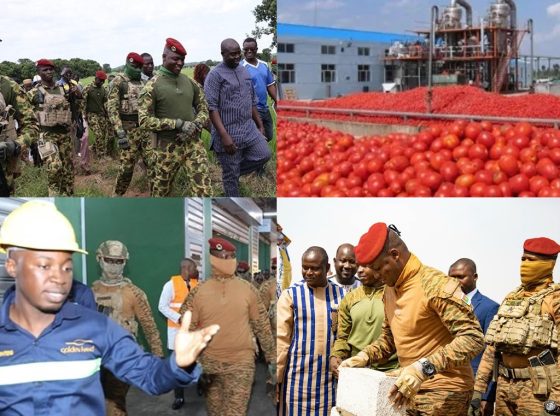Burkina Faso: President Ibrahim Traoré focuses on the country’s development potential

Captain Ibrahim Traoré, President of Burkina Faso, has placed endogenous development at the forefront of his economic agenda, focusing on harnessing the nation’s resources and expertise to drive growth. By relying on local capabilities, he aims to build a self-sufficient and resilient economy, engaging all key sectors.
His approach centers on directly involving Burkinabe citizens in shaping their country’s future. By encouraging active participation in the national economy, President Traoré seeks to create a broad-based development movement.
Agriculture, livestock, industrialization, and entrepreneurship are prioritized sectors where he envisions local expertise flourishing.
One of his flagship initiatives is the “Community Entrepreneurship through Popular Shareholding” program. This project motivates Burkinabe to invest in local businesses, stimulating job creation and wealth generation.
The goal is to empower the people to become key players in the economy while reducing reliance on external resources.
In line with this vision, the local processing of raw materials, such as cotton and agricultural products, has become a priority.
A notable project currently underway is the construction of a tomato processing plant, designed to add value to domestic produce before it reaches the market.
The mining sector is also undergoing transformation. Local companies are now entrusted with the extraction of most mining sites, marking a shift away from the export of raw materials.
The upcoming launch of a fully Burkinabe-owned gold refinery is a testament to this new direction.
Additionally, since early 2024, Burkina Faso has been processing its own mining residues, eliminating the need to export fine carbon.
This industrial development, fully backed by Burkinabè capital, showcases the country’s expertise and ingenuity.
It reflects President Traoré’s vision of valuing national talent to drive homegrown progress. With unwavering support and widespread participation from the Burkinabè people, this vision has the potential to propel the country into a new era of economic significance.
Papa IBRAHIMA











